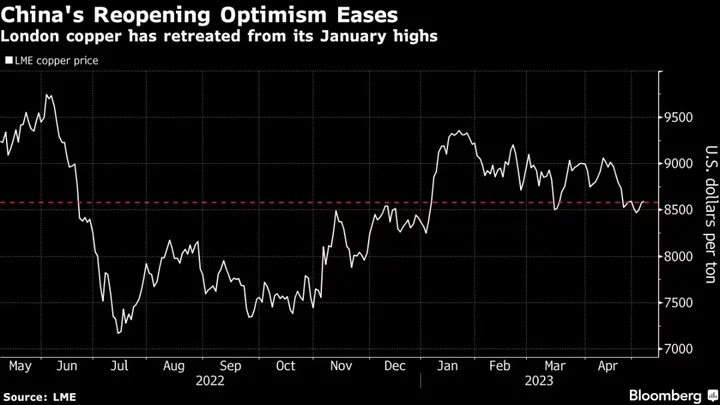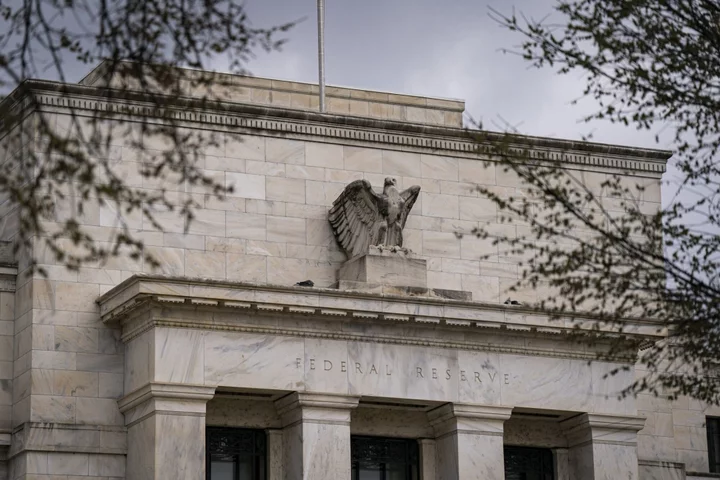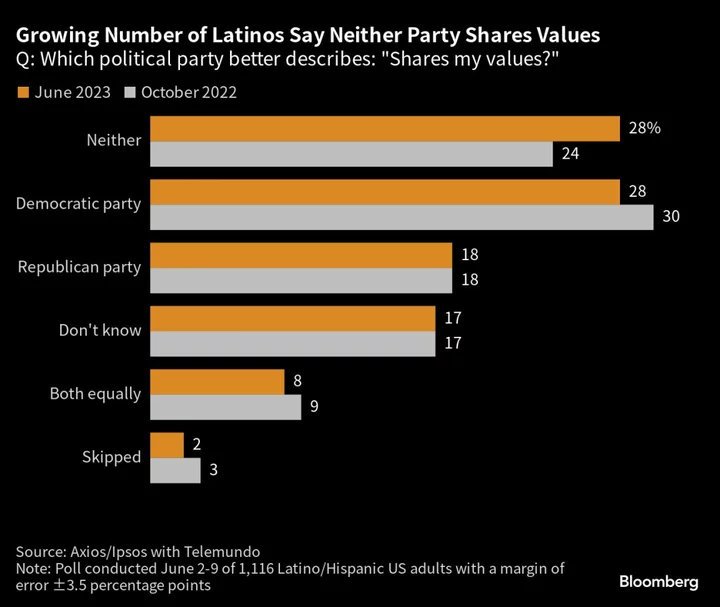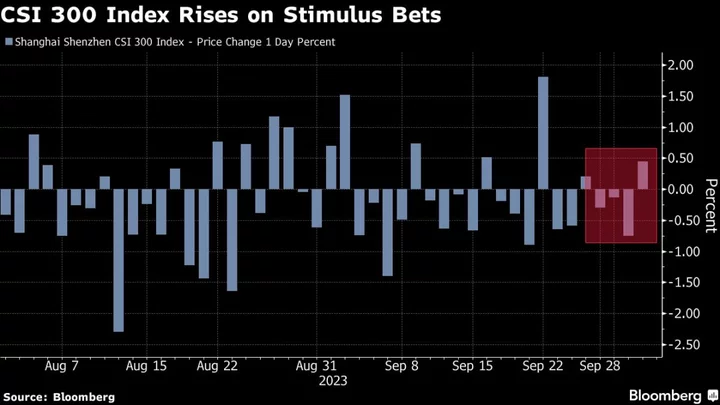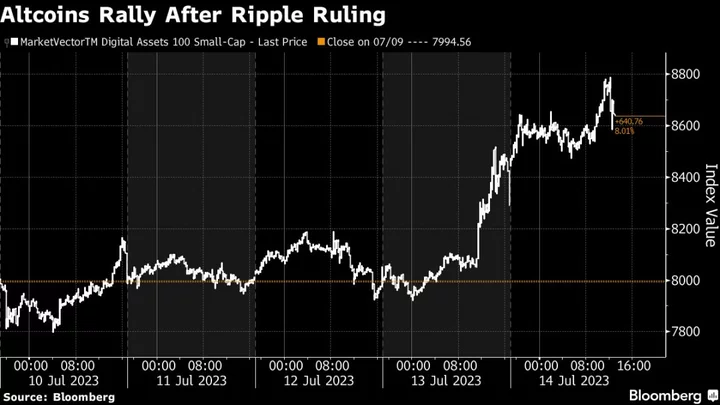Asia’s copper industry meets in Hong Kong next week to discuss a market that should be bursting with opportunities after China, the biggest consumer of the metal, called an end to the pandemic restrictions strangling its economy.
The government’s pledge to raise economic growth, and an increasingly outsized contribution to demand from its rapid build out of clean energy, have spurred optimism that China’s reopening will help offset weaker activity elsewhere in the world. But the reality on the ground is much gloomier as traders seek evidence of a kick-start to consumption that has so far proved elusive in the months since Beijing lifted its Covid Zero curbs.
“Many people in the industry are disappointed by Chinese demand so far this year,” said Shen Haihua, a portfolio manager at Hong Kong-based hedge fund Entropy Asset Management Ltd.
The London Metal Exchange’s gathering is its first in-person meeting in Asia since the pandemic struck, convening more than a thousand executives, traders, bankers and analysts to chew over the latest industry news, and wine and dine old friends in the city’s bars and restaurants.
Less than two months ago, few were betting against copper’s prospects after the world’s top trader of the metal, Trafigura Group, told a conference in London that it expects prices to hit a record within a year.
What’s changed is a slew of data indicating that China’s recovery is losing momentum. A survey of purchasing managers showed the factory sector contracting in April for the first time this year, while copper imports dropped to their lowest since October. Chinese imports of the metal in the first four months are lagging 13% behind the pace set in 2022, a year that saw copper purchases boom despite generally weaker demand for other commodities.
Economic Barometer
That speaks to one explanation for why consumption may have fallen short of expectations. Chinese industry suffered less than other parts of the economy during the Covid-era slowdown, according to Capital Economics Ltd., a London-based research firm, which means that post-virus growth was only ever going to be modest. At the same time, China’s need for metals like copper is being capped by softer demand for exports as other nations flirt with recession.
Copper prices have long been considered a useful barometer of an economy’s health because of its widespread usage, from power cables, to pots and pans and mobile phones. As such, its fortunes have been closely tied to China’s rapid growth in recent decades.
So it’s instructive that Chinese traders surveyed by Bloomberg ahead of the LME event are tilting toward prices falling in the short term. Some said they’re experiencing the worst margins in over 10 years, while smelters are turning to exports to compensate for a sluggish domestic market.
Copper is too scarce and too valuable to the energy transition to be on the ropes for long. But timing its resurgence is becoming increasingly fraught given the frailty of the world economy and the absence of robust Chinese demand.
From January to April, copper in China has averaged about 400 yuan ($58) a ton less than London prices. The premium at the port of Yangshan, which measures import needs, has more than halved since mid-March and is bumping along near record lows. And that’s during a second quarter which is usually considered to be a peak period of consumption among fabricators of the metal.
Tycoon Running a Quarter of China’s Copper Trade Is on the Ropes
On the LME itself, the world’s premier exchange for metals, volatility — the lifeblood of the market — has slumped. On a 30-day basis, price fluctuations have fallen to their lowest since November 2020, forcing traders to the sidelines.
Lackluster consumption is the biggest problem, but another factor is that China’s smelting industry is still expanding. That means more demand for ores and concentrates mined overseas, and less for the refined metal that backstops futures markets like the LME. Copper’s value as an asset has also waned after the collapse of China’s biggest trader sent a chill through dealing rooms and subdued the appetite among lenders for using the metal as collateral on loans.
--With assistance from Winnie Zhu.

